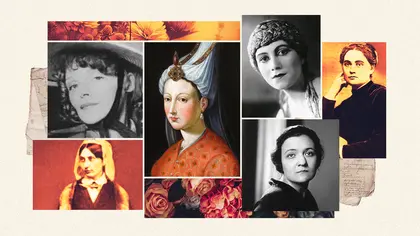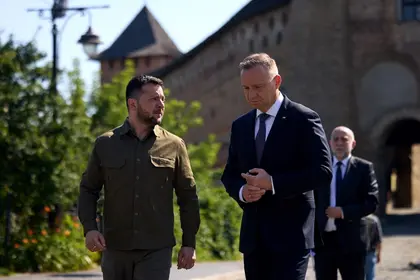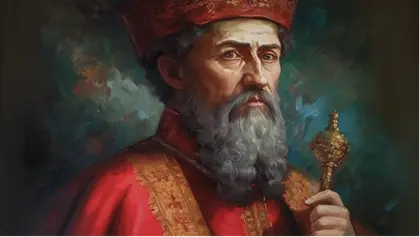I’m in Warsaw this Sunday, July 9, a warm summer day. But nevertheless there is a cloud on the horizon.
For while the sun shone strongly, for many Poles this is a sad day of remembrance for the tens of thousands of victims of massacres which took place 80 years ago in the north-western Ukrainian region of Volhynia, largely Poles, and for which they blame the Ukrainians – and Ukrainians, the Poles.
- Obtain the most recent updates on the Ukraine situation today.
- Russian Losses
JOIN US ON TELEGRAM
Follow our coverage of the war on the @Kyivpost_official.
The Polish journals are full of articles recalling these tragic events. Conspicuously silent this morning, I noticed, about this sad page in bilateral relations has been the Ukrainian media.
While being interviewed in Warsaw on Poland’s international TVP World channel this morning I was also asked to comment about this somber anniversary. To my surprise, and then appreciation, the Polish channel showed video footage of the presidents of Ukraine and Poland commemorating this tragedy together in a spirit of reconciliation and solidarity in the Ukrainian Volhynian city of Lutsk.
Finally, I thought, both nations have matured enough to recognize the ugly and divisive event in their common past and, without apportioning degrees of guilt. To put the thorny past behind them and to move forward in the spirit of understanding and fraternity which after centuries of a troubled past has now bonded them in the face of a common enemy and shared European identity.
My Polish hosts tell me that Russian bots are very active on this day trying to use the occasion to strike at Ukrainian “nazis.” Not surprising, I answer, but when it comes to mentioning the Nazi-Soviet Pact of 1939, the active collaboration until June 1941 of the Soviet Reds and the German Browns, and the Soviet massacre of Polish POW officers in Katyn and esewhere, they are silent.

Ukraine’s Femmes Fatales
None of us individuals, let alone nations, are perfect, and there comes a time to face up to the truth about the past, however, uncomfortable it may be. And now, more than ever, when Poland has proved itself to be a reliable and staunch ally of Ukraine in its most difficult period in modern times, it is now that the truth about the past has to be faced and acknowledged.
The Poles of that period had plenty to answer for, but that does not let the Ukrainians off the hook. Historians should ascertain the facts as objectively as possible without the supervision of political overseers.
The objective is not to apportion blame but to ensure that we learn the proper lessons from history and do not repeat similar mistakes. And to ensure that as a result, the Ukrainian and Polish nations bond even closer.
So, over to Kyiv and Warsaw to encourage their historians to continue working together to make sense of what occurred, to consolidate mutual trust and cooperation, and to silence Moscow’s cynical bots and servants of the Kremlin.
In short, politics be shunned in this situation. In Kyiv, silence on this theme is unwarranted and impermissible. Zelensky and Duda have just reminded us of this.
Let truth and justice prevail.
You can also highlight the text and press Ctrl + Enter










